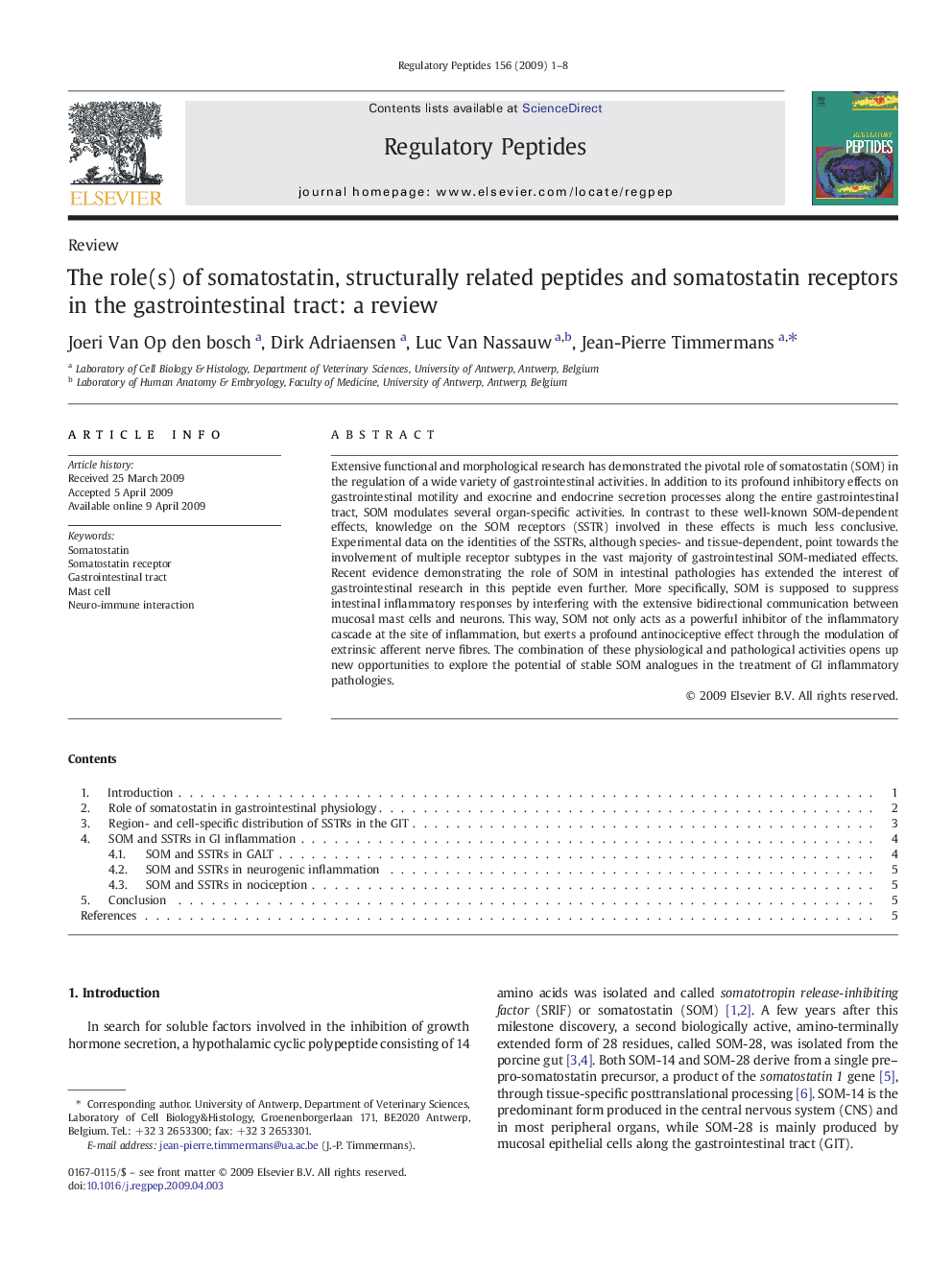| Article ID | Journal | Published Year | Pages | File Type |
|---|---|---|---|---|
| 2022918 | Regulatory Peptides | 2009 | 8 Pages |
Extensive functional and morphological research has demonstrated the pivotal role of somatostatin (SOM) in the regulation of a wide variety of gastrointestinal activities. In addition to its profound inhibitory effects on gastrointestinal motility and exocrine and endocrine secretion processes along the entire gastrointestinal tract, SOM modulates several organ-specific activities. In contrast to these well-known SOM-dependent effects, knowledge on the SOM receptors (SSTR) involved in these effects is much less conclusive. Experimental data on the identities of the SSTRs, although species- and tissue-dependent, point towards the involvement of multiple receptor subtypes in the vast majority of gastrointestinal SOM-mediated effects. Recent evidence demonstrating the role of SOM in intestinal pathologies has extended the interest of gastrointestinal research in this peptide even further. More specifically, SOM is supposed to suppress intestinal inflammatory responses by interfering with the extensive bidirectional communication between mucosal mast cells and neurons. This way, SOM not only acts as a powerful inhibitor of the inflammatory cascade at the site of inflammation, but exerts a profound antinociceptive effect through the modulation of extrinsic afferent nerve fibres. The combination of these physiological and pathological activities opens up new opportunities to explore the potential of stable SOM analogues in the treatment of GI inflammatory pathologies.
